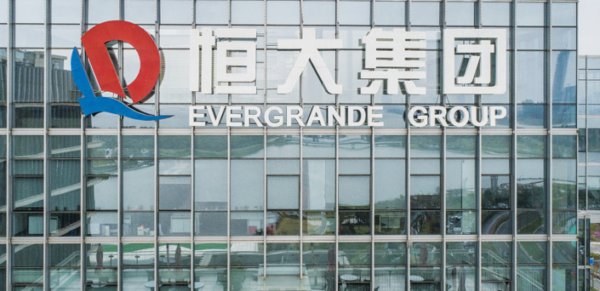The man that broke the Bank of England, billionaire George Soros, has stated in an op-ed that there’s “an enormous crisis brewing in China’s real-estate market.”
Soros criticized BlackRock’s decision to enter China’s financial market, stating pouring billions into the country is a “tragic mistake.”
“It is likely to lose money for BlackRock’s clients and, more important, will damage the national security interests of the U.S. and other democracies.”
Chinese investors have been on edge for much of this summer with more than a trillion wiped out at one point in one of the most turbulent few months in living memory.
Hedge funds are reducing exposure, including of US companies that rely on elevated sales in China, cutting net holdings by 26% over the month through late August.
Chinese officials have tried to reassure markets, but a cut in Evergrande’s bond ratings by China Chengxin International Credit Rating has investors concerned.
Moody’s followed, downgrading Evergrande’s credit rating by three notches to Ca, which implies it is “likely in or very near default.”
Moody’s also downgraded Guangzhou R&F Properties Co by one notch to B2 on Friday and put the builder on watch for further downgrade, citing increased refinancing risks.
Evergrande has some $300 billion in debt, or about 2% of China’s GDP, with Caixin reporting they paid a paint supplier in property for overdue debts. Some of those properties are yet to be constructed.
It’s not clear whether China’s central government would get involved if they do go bankrupt. The debt is enormous, considerably more than the GDP of Greece, again, with China not quite afforded the luxury to print as it doesn’t have a reserve currency status.
The dollar is backed by oil in part, with its devaluation in part carried by oil suppliers until they increase prices. The Euro accounts for more than 20% of global trade, not to mention Germany’s significant surplus. The Yuan accounts for about 1% or so of global trade, limiting what the central government can do.
Some say it won’t get involved at all, letting it fall. That would reverberate, with some already calling Evergrande the first domino in a highly indebted and very fast expanding property market.
That may slow down the entire economy, something that would be a first since 1992 if it develops into a recession.
Bets are Europe and America would not be affected because China’s economy was not affected when US banks crashed. To the contrary, it started taking off around that time in a somewhat vertical trajectory that has sent its GDP from $2 trillion to $14 trillion in just 15 years.
America and Europe may even benefit as investments that were to go to China head towards the west, with the strengthening CNY potentially further contributing to a slowdown due to making their exports more expensive.
In the midst of all this, China’s President Xi Jinping has turned his attention to ‘common prosperity,’ which some are taking as a code word for communism. In a commentary widely cited by Chinese state media with some Chinese officials stating it is closest to the interpretation at the center, blogger Li Guangman says according to a rough translation:
“The series of rectification actions by the People’s Republic of China are telling us that China is undergoing major changes, from the economic, financial, cultural, and political fields to a profound change, or a profound revolution. This is a return from the capital group to the masses of the people, and this is a transformation from capital-centered to people-centered.
Therefore, this is a political change, the people are becoming the main body of this change again, and all those who block this people-centered change will be discarded. This profound change is also a return, a return to the original intention of the Chinese Communist Party, a return to the people-centered nature, and a return to the essence of socialism.”
This statement, carried by People’s Daily, Xinhua News Agency, PLA Daily, CCTV, China Youth Daily and China News Service, may well be the latest sign of what can only be called euphoria, delusional euphoria.
Within that sort of bubble, some in Wall Street appear to be in denial despite the classic signs of a new paradigm with all talking about China for sure will overtake USA and will keep on endlessly growing despite it already having 10x-ed in a decade or so.
That delusion is of course combines with arrogance and doubtless certainty to the point the government apparently wants to take over Didi.
Things are so good, there’s nothing they can’t do. The 10x was not due to industrialization, massive foreign investment, and the starting point of zero debt, but due to the genius steering of the CCP which is now so euphoric with ‘its’ success it thinks it can manage even taxis on top of everything else.
Not to mention Xi’s term expires next year. Some say he’ll try to run for a third term in contravention of the term limits. If he does and succeeds in doing so, then hopefully we won’t have a better example of risky euphoria in our time.
Where bitcoin is concerned, it should be a hedge in times of certainty due to being outside of the banking system especially in a country which doesn’t have a reserve currency, but what exactly it will do remains to be seen.
Source: Read Full Article
